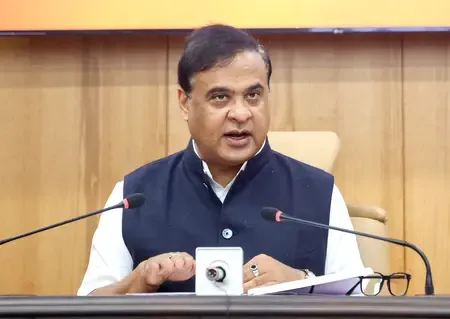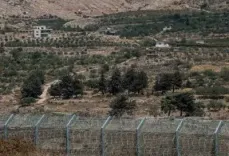Is Bengal Promoting Infiltration for Political Gain? Assam CM's Strong Response to Mamata

Synopsis
Key Takeaways
- Assam's CM warns of demographic shifts.
- Criticism of unchecked infiltration for political gain.
- Cultural preservation needs border security.
- Political leaders exchange sharp words on social media.
- Importance of community coexistence emphasized.
Guwahati, July 19 (NationPress) Assam Chief Minister Himanta Biswa Sarma launched a strong rebuttal against his West Bengal counterpart Mamata Banerjee, accusing her of facilitating demographic changes through rampant infiltration aimed at political benefits. In a pointed message on X, CM Sarma responded to Banerjee's recent remarks, emphasizing that Assam is not fighting against its own people but is addressing what he termed "ongoing, unchecked Muslim infiltration" from neighboring borders.
The BJP leader asserted that such infiltration has caused a significant demographic shift in various districts of Assam, where, according to him, Hindus are at risk of becoming minorities in their own homeland.
Referencing a Supreme Court observation, CM Sarma characterized the situation as an act of "external aggression," emphasizing that the threat is not merely a political narrative but a pressing reality for Assam.
CM Sarma criticized Banerjee for her silence regarding cross-border infiltration, claiming it was a tactic to retain power. "You, Didi, have compromised Bengal's future," he stated, contrasting it with Assam's decisive measures to safeguard its identity, culture, and constitutional integrity.
The Chief Minister defended Assam's diverse social fabric, asserting that all communities—Assamese, Bengali, Bodo, and Hindi-speaking—coexist within the state. However, he underscored that cultural unity cannot be preserved without securing borders and protecting Assam's heritage.
He reiterated that Assam will continue its "struggle to uphold its dignity and the rights of its people with determination and constitutional clarity." Earlier in the day, Banerjee took a jab at the BJP-led government in Assam.
In a post on X, the West Bengal CM remarked, "The second most spoken language in the country, Bangla, is also the second most spoken language of Assam. To threaten citizens who aspire to coexist peacefully, while respecting all languages and religions, with persecution for defending their mother tongue is discriminatory and unconstitutional."
"This divisive agenda of the BJP in Assam has crossed all boundaries, and the people of Assam will resist. I stand with every courageous citizen fighting for the dignity of their language, identity, and democratic rights," she added.







